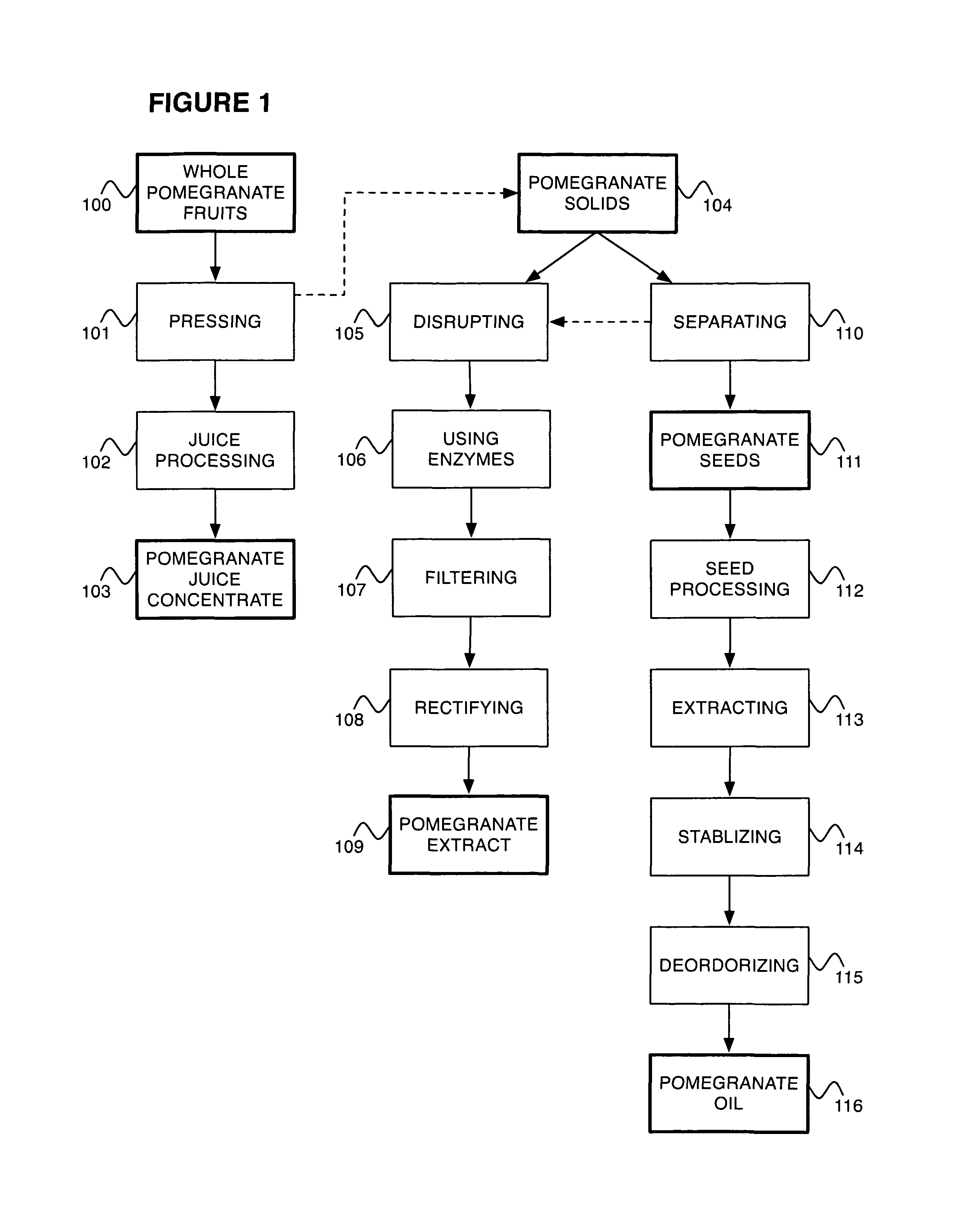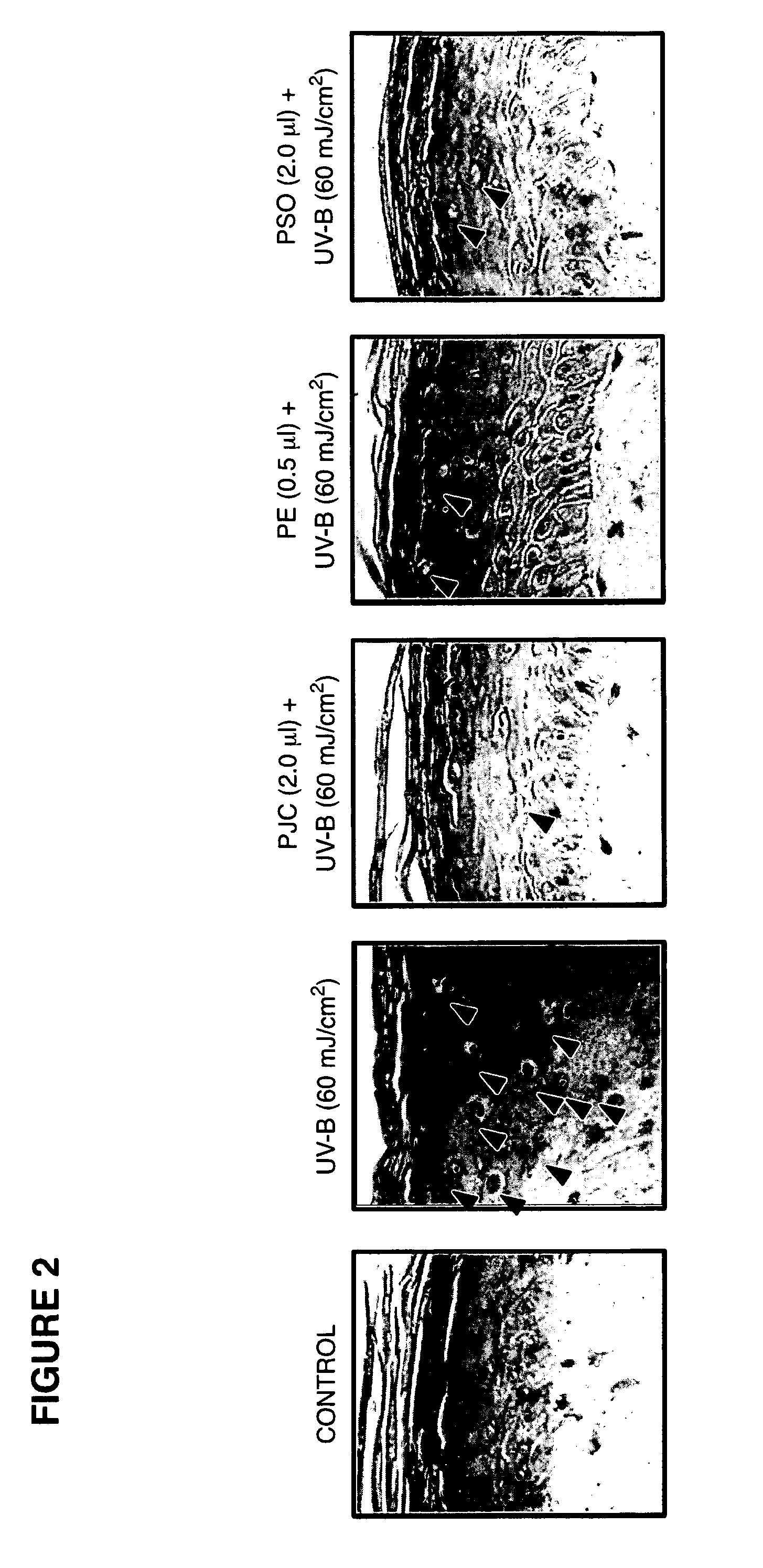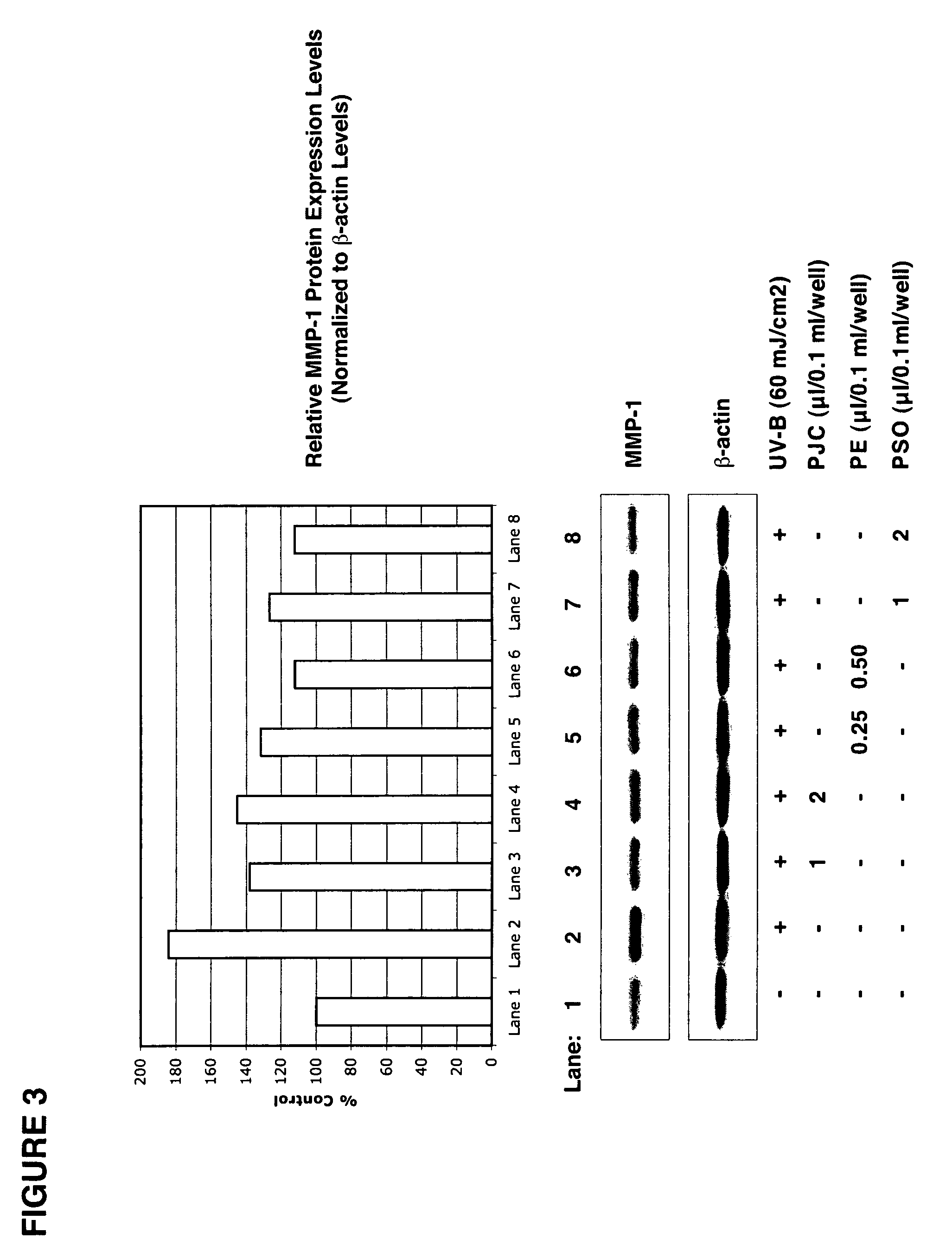Pomegranate based skin protectant and topical application
a skin care and pomegranate technology, applied in the field of pomegranate based skin care compositions, can solve the problems of skin aging and environmental damage, increased pore size, loss of rigidity or elasticity, etc., to reduce or efface the visibility of fine lines, reduce visible and/or tactile discontinuities, and reduce the effect of enlarged pores
- Summary
- Abstract
- Description
- Claims
- Application Information
AI Technical Summary
Benefits of technology
Problems solved by technology
Method used
Image
Examples
example 1
Preparation of PJC
[0109]The following procedure was used to produce pomegranate juice concentrate (PJC).
[0110]Pomegranates were picked by hand, washed, chilled to 32° F., and stored in tanks. Then the fruit was crushed, squeezed, and enzymatically treated with pectinase to yield the pomegranate juice and the pomegranate solids byproducts, which include the pericarp, the inner membrane and the seeds. Pectinase hydrolyzes alpha-1.4 galacturonide bonds in pectin and, thus, it improves extraction and filtration, and prevents formation of pectin gels. The juice was filtered, pasteurized, concentrated, and stored at −18° C.
[0111]Alternatively, pomegranates were picked by hand, washed, and stored in tanks. Then, the fruits were crushed and squeezed. The juice was filtered, pasteurized, concentrated, and stored as PJC at −18° C.
[0112]The PJC may be diluted 1:5 (v:v) with water in order to obtain a single strength pomegranate juice.
example 2
Preparation of PE
[0113]The following procedure was used to produce pomegranate extract (PE).
[0114]The starting material for the production of the extract is the pomegranate solids, which generally comprise the pericarp, the inner membrane and the seeds of the pomegranate. The pomegranate solids were obtained and collected after the primary juice from the arils had been substantially expelled or otherwise removed from the pomegranate by pressing, crushing, or any other methods for extracting pomegranate juice.
[0115]The pomegranate solids were then transferred to three Reitz Mills with ⅜-inch screens. The material was milled to a fine puree and heated to approximately 125° F. This step, coupled with the following enzyme addition, assisted in breaking down the colloidal structure of the remaining pomegranate solids, thereby releasing the remaining soluble solids.
[0116]The mixture was heated to a temperature of about 125° F. for two hours. Three enzymes were added to the mixture: pectin...
example 3
Preparation of PSO
[0120]The following procedure was used to produce pomegranate seed oil (PSO).
[0121]Pomegranate seeds are separated from a mash of pomegranate fruit after the pressing step (crushing and squeezing) in the Example 1. Pomegranate seeds are processed in a forced air dryer for purposes of removing moisture from the pomegranate seeds from which the seed oil is to be extracted. The set temperature range of 80-110° C. is generally acceptable for achieving the proper level of drying when drying is done for a duration of 3 to 9 hours to yield seeds with 5-8% or less than 8% moisture content
[0122]Dried pomegranate seeds can contain dried pulp and skin fragments. It is generally beneficial to further process dried pomegranate seeds to remove these unwanted materials from the pomegranate seeds. Removal of unwanted dried material is carried out by placing pomegranate seeds onto a shaker deck. An air aspirator is also helpful when seeking to remove these unwanted materials. When ...
PUM
 Login to View More
Login to View More Abstract
Description
Claims
Application Information
 Login to View More
Login to View More - R&D
- Intellectual Property
- Life Sciences
- Materials
- Tech Scout
- Unparalleled Data Quality
- Higher Quality Content
- 60% Fewer Hallucinations
Browse by: Latest US Patents, China's latest patents, Technical Efficacy Thesaurus, Application Domain, Technology Topic, Popular Technical Reports.
© 2025 PatSnap. All rights reserved.Legal|Privacy policy|Modern Slavery Act Transparency Statement|Sitemap|About US| Contact US: help@patsnap.com



